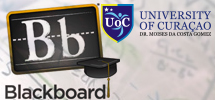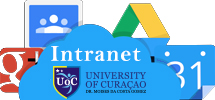History
FdSEW History
The Faculty for Social Sciences and Economics (FdSEW) started in 1973 offering bachelor programs in Business Administration and Accounting as an answer to the identified local needs. During the past 30 years, the Faculty has offered a wide range of financial and economic programs to benefit the financial sectors and financial relations within the Curaçao community.
Currently the FdSEW is offering degrees at bachelor and master level, linked to professional and academic educational programs.
FdSEW is the largest faculty of the UoC with about 1000 students, divided among the following educational programs at bachelor and master level, namely:
| • | Bachelor of Applied Science in Business and Management Studies with Majors in Business Information Systems, International Business , Marketing Management. | |
| • | Bachelor of Applied Science in Human Resource Management. | |
| • | Bachelor of Applied Science in Finance & Accounting | |
| • | Bachelor of Applied Science in Finance and Control |
|
| • | Bachelor of Science in Economics. | |
| • | Bachelor of Science in Accountancy. | |
| • | Master of Science in Accountancy, in close cooperation with RUG, Groningen. | |
| • | Master of Science in Business Management, in strong cooperation with Hofstra University, New York. | |
| • | Global Executive Master in Financial Management program(GEMFM), which is part of the GEMFM GLOBAL INC.( a network of different businesschools and universities) |
On a regular basis international professors fly over to lecture certain courses in the Master programs. These professors are mostly related to the partner universities.
During its nearly 30 years of existence the FdSEW has delivered a lot of graduates to the local community. Most of these graduates operate at high positions in the working fields, such as managers of local banks, accountancy firms, government, consultaning or have branched out as entrepreneurs. Graduates also successfully continue their study abroad, mostly at master level in the USA or in the Netherlands. It is confirmed that most of these students return to the island after graduating. This is not the case for most of the students going to the Netherlands after finishing their secondary school. This shows the urgency and importance of a local university that educates students for the local labor market.
The future graduates will be able to largely contribute to the further sustainable socio-economic development of the country.




